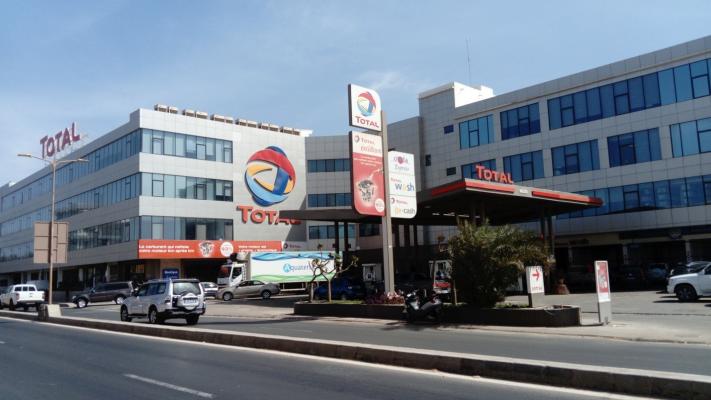The Limits of Our Economic Nationalism

The tendency to plead for economic nationalism and to invite patriotism to support the national actors of our economy is all too often present in our public discourse, in a context of disenchantment and hostile feelings towards foreign operators.This feeling, which is widespread in African public opinion, is often based on arguments that are out of step with the complexity of the economic reality and do a disservice to the national champions that we would like to see emerge in the face of foreign firms. In Senegal, two recent events were symbolic of this dissonance between the desire to promote economic patriotism and its contradictions with the real functioning of our economy if the dynamics of all the actors operating in it are studied at all.
The controversy over the fuel made available to Senegalese deputies, supplied by « foreign » brands such as Total Energies Senegal and Shell, triggered by the activist Guy Marius Sagna refusing his fuel supply to, he says, not support these groups against Senegalese companies, is the first episode. They wanted to stigmatise brands considered foreign in this country, which claims to be attractive for business. The brands considered foreign are owned by Senegalese, employ Senegalese and contribute to our economy. A company like Total Senegal had the late businessman Ahmed Amar as one of its main shareholders, as well as many other « Made in Senegal » assets. The network of petrol stations of « foreign » companies is owned, for the most part, by Senegalese operators in a franchise system. The fuel supplied in Senegalese stations is refined by SAR: a national company! What is the point of wanting to stigmatise economic actors by calling for an economic patriotism that is only based on a feeling of hostility towards foreigners? Auchan supermarkets and other brands have been ransacked because a hostility that was not justified by economic reality was allowed to flourish. No effort has been made to deconstruct such a discourse. A feature in the column » Beware of clichés about French interests in Senegal » by Madiambal Diagne, reminded us in 2019 that a populist, exclusionist and at the very least subjective discourse had taken over the analysis of Senegal’s economic relations with its partners. The same method is still at work.We’re hoping not to have to contemplate its unfortunate consequences.
The exclamation of the journalist, Alassane Samba Diop, on this new economic patriotism which is growing tiresome, is very legitimate. If economic patriotism is reduced to simplistic shortcuts on the control of our national economy or to simple clothing, we must recognise that the game is lost in advance. The controversy that arose after the publication by a Senegalese watch brand « Mathydy » of a photo of the leader of the Pastef party wearing one of their products is the second episode of this dissonance arising from the feeling of economic nationalism that one seeks to exacerbate everywhere.What is local about a product whose main mechanism is Japanese, all the components are manufactured under a whitelabel by Indian or Chinese workshops, even if the assembly were done in Senegalese soil? I will be told that this is the march of capitalism and that most manufactured products are made under this same scheme, but there is a dissonance in claiming patriotism with an « entirely Senegalese » product and making it a revolutionary artifice in view of this production scheme. The feat of the Senegalese watchmaker is to have succeeded in inscribing itself in a culture of affirmation of Africanness with a product designed under our colours, in a sector where there has not yet been a major breakthrough of an authentic African product. This business model has flourished in the world of watchmaking since the success of the Undone Watches brand, founded by Hong Kong’s Michael Young, a supplier of components for watchmakers such as Swatch, Omega and Hublot. To see it repeated under our skies shows that our country is also on the lookout for trends.However, to take such a gesture and make it the archetypal plea for « consuming local » at home is quite revealing of the limits that all the talk of economic nationalism can offer us on the real control of our economic issues. The Rolexes on both wrists of Fidel Castro have long maintained the ambiguity between a thumbing of the nose at capitalism by the Lider Maximo or the confession of a repressed love for a bourgeois talisman, the loud acclamation of the wearing of a watch « 100% local » will have revealed to us, the limits of economic nationalism in Senegal.
By Serigne Saliou DIAGNE / saliou.diagne@lequotidien.sn

